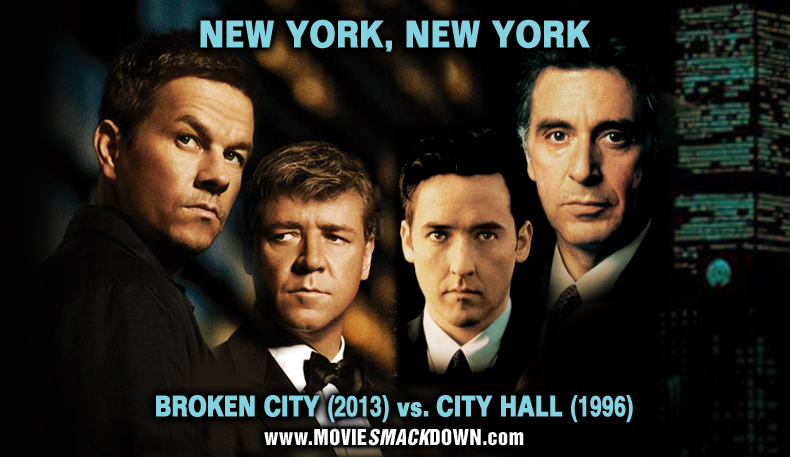
The Smackdown
Ah, the ’70s. Now that was the golden era for New York City movies, am I right? (Just nod, youngsters.) You had the likes of Martin Scorsese, Sidney Lumet and Woody Allen, all at the top of their games, cranking out classics ranging from Taxi Driver to Dog Day Afternoon to Annie Hall to Mean Streets to Serpico to Manhattan, and even to a movie named New York, New York, which actually wasn’t very good, but my point stands, which is that New York’s best cinematic days are long behind us. Woody Allen is now essentially doing a movie for every city he’s ever visited outside of New York, Scorsese basically just does whatever he feels like doing at the moment, and Lumet… is not doing much at all these days, but he has a solid excuse.
So now NYC movies are few and far between, and I’m guessing it’s because the city is still reeling from the notorious Stay Puft Marshmallow Man incident back in ’84. And good NYC movies are even fewer and farther between, ranging mostly from the tolerable to the terrible. But just to prove that 9/11 didn’t quite change everything, here we have two eerily similar movies, one from before, one after, about the city’s political corruption. In each case, said corruption goes all the way up to the mayor’s office, and the mayor is played by an Oscar winner who doesn’t remotely resemble any New York mayor in recent memory. But that’s the magic of movies, and letting the new Broken City duke it out with City Hall (1996) is the magic of Smackdown!
Start spreading the news…
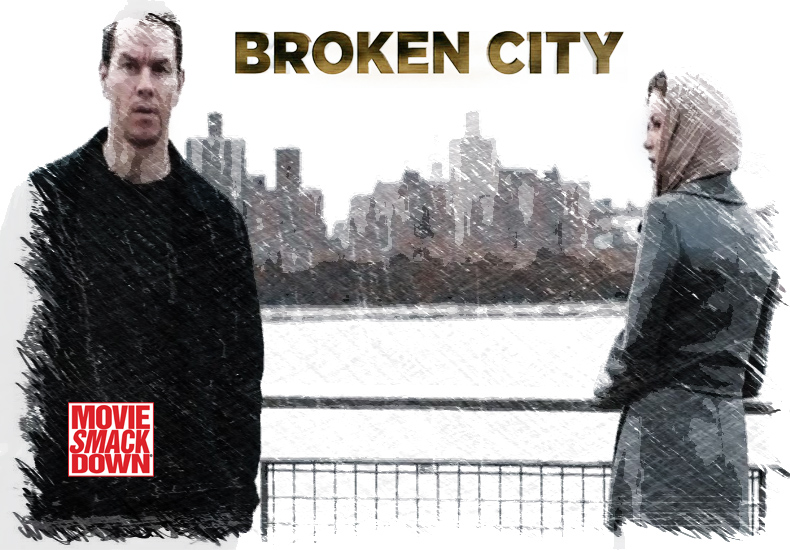 The Challenger:
The Challenger:
As the mayoral election approaches, Billy Taggart (Mark Wahlberg), a Manhattan cop-turned-private-investigator with a controversial shooting in his past is recruited by the oily mayor Hostetler (Russell Crowe, sporting easily the worst haircut of his career) to identify the man his wife (Catherine Zeta-Jones, in basically an extended cameo) is cuckolding him with. The lover seemingly turns out to be none other than Paul Andrews (Kyle Chandler, obligatory in pretty much all political movies these days), the campaign manager of Hostetler’s liberal, valiant opponent, whose name, no, really, I’m not kidding, is Jack Valliant (Barry Pepper, sporting an even worse haircut than Crowe’s, WTF?). When Andrews is murdered, Taggart realizes his assignment wasn’t quite what it seemed.
If that weren’t bad enough, his actress girlfriend Natalie (Natalie Martinez) has gotten a starring role in what appears to be a very lame soft-core porn with Justin Chambers (that guy from Grey’s Anatomy who isn’t McDreamy). Which gets Taggart so upset that he falls off the wagon, which… doesn’t actually affect anything, but the point is, this is one Broken City.
 The Defending Champion:
The Defending Champion:
An undercover cop and a drug dealer engage in a sidewalk shootout that leaves them both dead, along with a young black child hit by a stray bullet. Not merely a senseless tragedy, this spells a potential political disaster for the flamboyantly bombastic mayor John Pappas (Al Pacino), depending on whether or not the cop was dirty and why the drug dealer was free in spite of a past parole violation. It’s up to Pappas’ loyal right-hand man Kevin Calhoun (John Cusack, looking very young and bravely grappling with a Louisiana accent) to play detective and track down who did what and why. His trail leads him to, among others, a gruff but lovable judge (gruff but lovable go-to-guy Martin Landau), an uneasy parole officer (a pre-West Wing Richard Schiff) and a feisty lawyer played by Bridget Fonda, as this was back before people figured out to stop hiring her.
Meanwhile, Pappas and Calhoun are also going toe-to-toe with a Brooklyn party leader (Danny Aiello) who has strong ties to a mob boss (Tony Franciosa), with whom the dead cop may have also been connected. Small town!
City Hall was directed by Harold Becker, a cop thriller specializer who had previously helmed Pacino’s terrific comeback, Sea of Love (1989). The script is credited to four writers, including Bo Goldman, who wrote Pacino’s Oscar-winner Scent of a Woman (1992), and Paul (Taxi Driver) Schrader, whose new, micro-budgeted, NC-17-rated film, The Canyons, leverages Lindsay Lohan in an attempt to resuscitate his once-prominent directing career.
The Scorecard:
Two films about New York mayors and a naïve protagonist slowly uncovering the truth about them. That open with a fatal street shooting that has reverberating consequences. That feature large ensemble casts of terrific character actors. That have complicated plots that get increasingly labyrinthine and corpse-riddled. Wow, is this one gonna be a nail-biter!
But here’s what else the two have in common: They are both preposterous, cliché-filled, humorless and flat-out dull. They both utilize a bunch of familiar actors playing roles we’ve seen them play a million times before. Both are almost completely devoid of a single credible moment, and both are almost entirely, instantly forgettable.
They’re also both painfully derivative, and they mainly differ in what they derive from. Most of City Hall feels like a bad episode of Law & Order or any of a dozen other shows that mechanically depict crimes being gradually solved via a series of interviews with uneasy, suspicious men in their offices. One watches it utterly befuddled by how a story this thin and episodic-TV-ish made it to the big screen. Only the grandiose, bigger-than-life, Biblical-proportion histrionics of Al Pacino manage to make it feel like a movie, but he’s so over the top (par for the Pacino course for the last two decades or so) that he mostly makes it feel like a silly movie. And he’s not even in it that much. The star, despite Pacino’s prominence in the poster and name above the title, is clearly Cusack, who delivers one of his weakest, least convincing performances. The actor is simply too savvy to play a character this naïve, too independent-minded to play such a loyal lapdog, and too not-from-small-town-Louisiana. But even his miscasting pales in comparison to that of the genuinely awful, in-over-her-head Fonda. (Maybe that was the idea?)
Broken City has more of a noir influence, its desire to follow in the footsteps of Chinatown and L.A. Confidential nearly palpable. The script, by rookie Brian Tucker, had a strong buzz around Hollywood, but whatever may have worked well on the page simply doesn’t translate to screen; the dialogue is flat, the characters one-dimensional, the plot a mix of the predictable, the trite, the over-stuffed and the confusing. The story’s MacGuffin is some sort of shady land deal that would enrich the mayor and his cronies, and that exactly no one in the entire city would give a damn about. Wahlberg and Zeta-Jones look thoroughly bored, and Crowe looks even more uncomfortable than he did singing in Les Miserables. In fact, the only one who seems to be having any fun at all is the adorable Alona Tal as Wahlberg’s flirty Girl Friday. She just looks happy to be working.
Director Allen Hughes, making his first film independent of his twin brother Albert, has exactly one signature trick in his bag: having the camera continuously encircle two actors as they talk. It’s like watching a conversation while riding a carousel, and while it may have played as a pretty cool effect in Menace II Society (the Hughes Brothers’ stunning 1993 debut, and to my mind, their only solid effort), it quickly grows tiresome and dizzying here.
The Decision:
If it’s not yet clear: Neither of these films is actually worth your time, particularly since memories of them both evaporate almost instantly. But keeping in mind that there are no ties in Smackdown, here’s what it boils down to: The sole memorable setpiece in City Hall has Pacino delivering a speech at the black child’s funeral, uninvited. It’s a shamelessly political speech that attempts to assure the mourners that New York can one day “be a palace again,†or as Pacino delivers it, “BE A PALACE AGAIN!!!” It’s arguably the least appropriate funeral speech ever delivered by a politician, but his raw oratorical passion is enough to win over the mourners, who start calling-and-responding with equal fervor. In short, it’s a wonderfully ridiculous scene, and there is absolutely nothing in Broken City that even approaches that level of audacity. Point being that as generally lame as both flicks are, one of them at least has that special loony magic that only Al Pacino at his most hammy can bring, and that alone is enough to give it the edge. So City Hall is the one to see if you absolutely have to see one of them… but hopefully, you don’t.


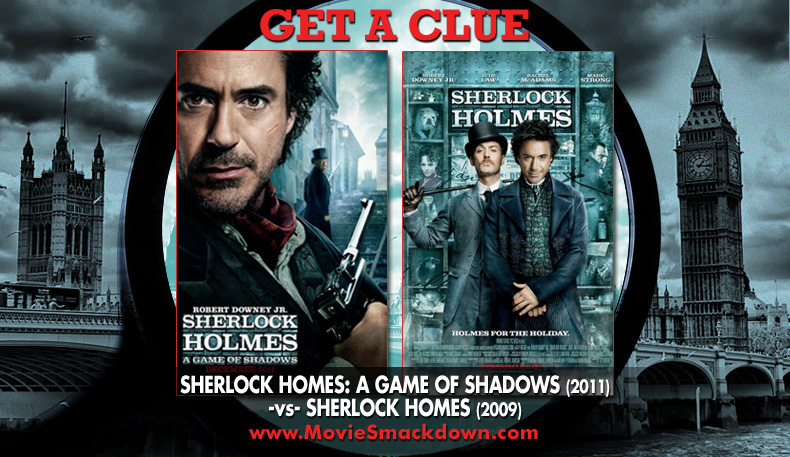
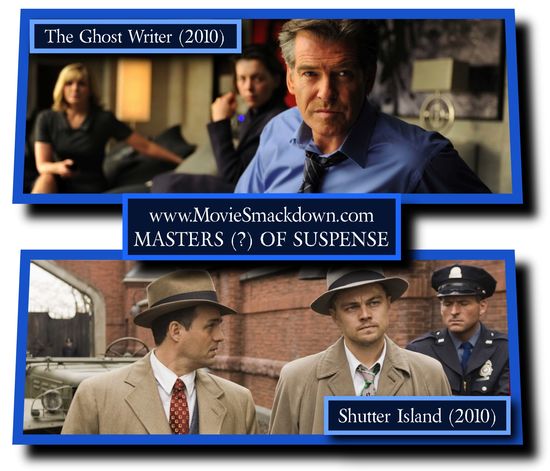
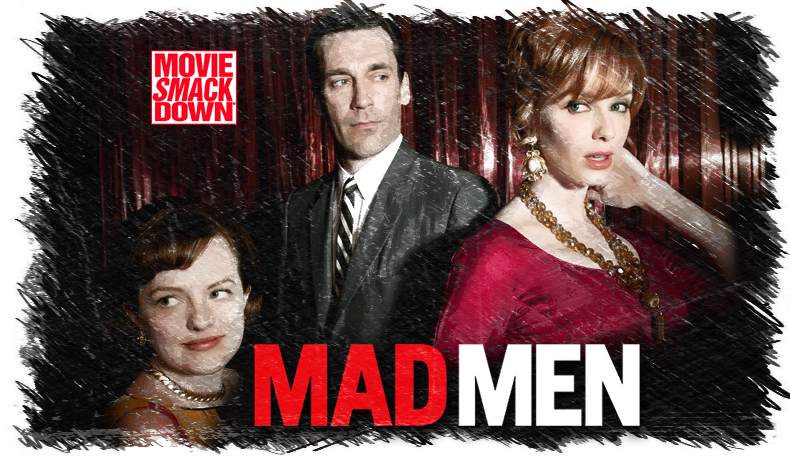
Leave a Reply